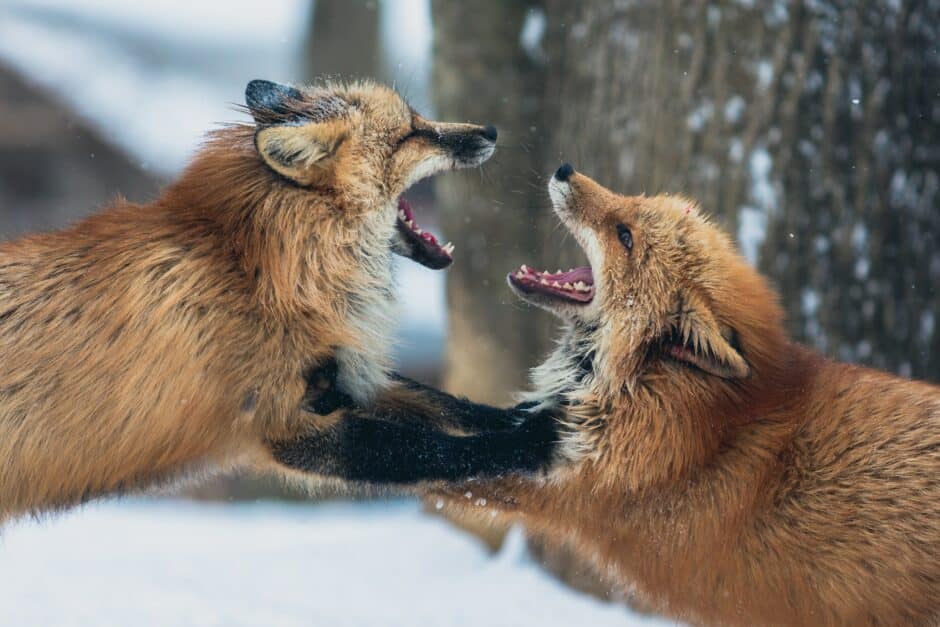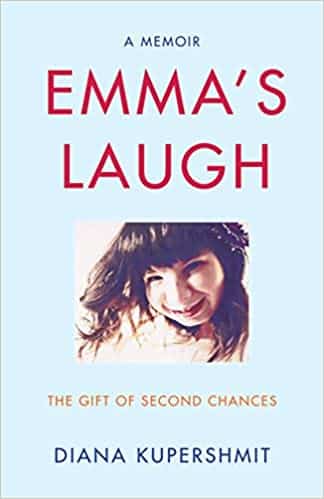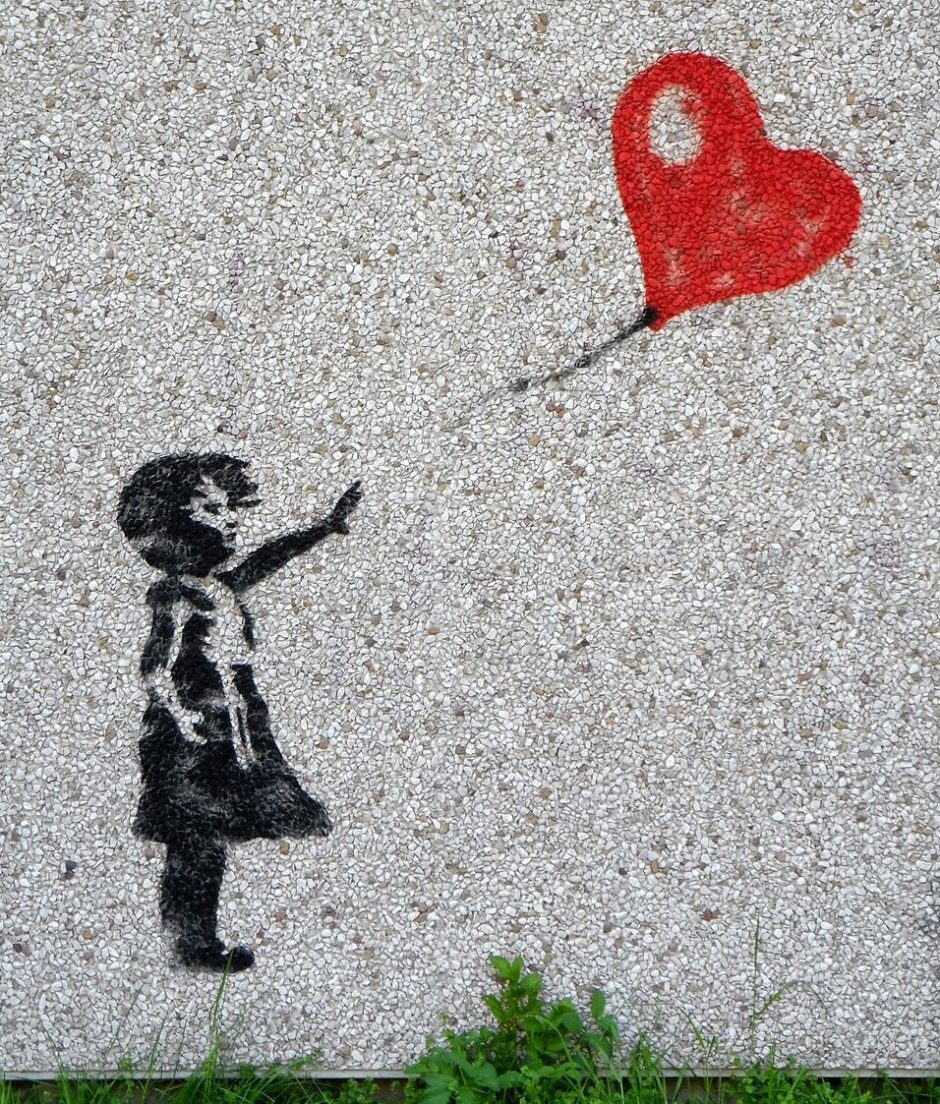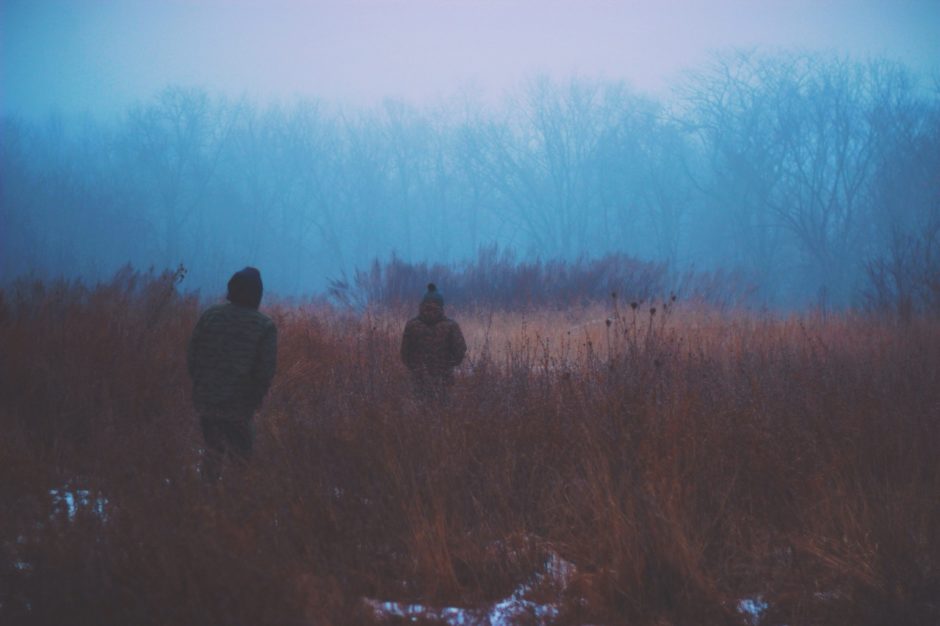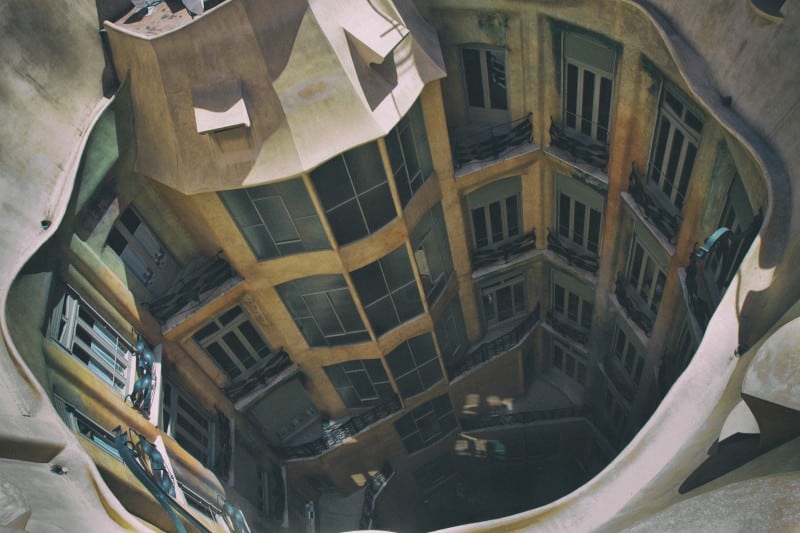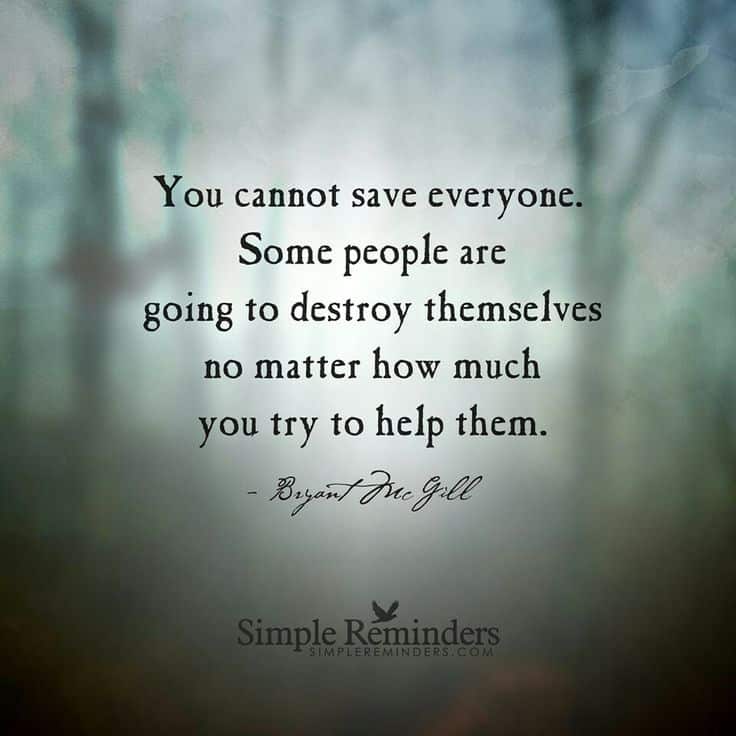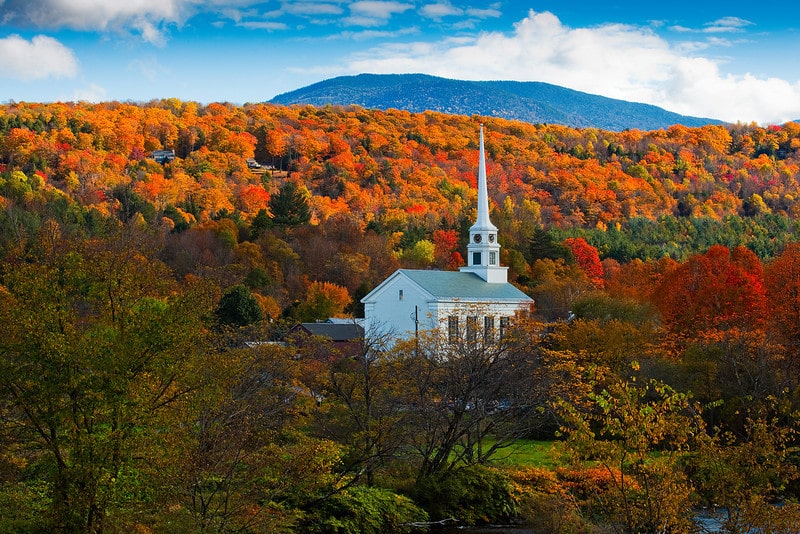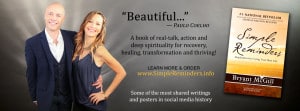by André Narbonne
Blake stood on the wooden steps leading to our house, in plain view but away just the same. His clenched fist was covered in blood, my blood, although the fact hadn’t occurred to us yet. I was still stunned by the lunacy of his anger, astonished by the blow that must have come out of a desire to knock down not just his younger brother but something bigger.
The air was strangely comical. It chirped. Clouds fled the veranda exposing Blake and me to the naked glare of the sun.
I pulled myself up. I spat, “I hate you,” brushed the dirt and broken fingers of leaves off my jacket, became aware of the red stain on my shoulder and chest. Rubbing a hand against my face, I held out a thick streak of blood.
“There,” I said.
That opened him. He stared at me and he bit his lower lip, and I knew that he was aware of having hurt me.
It had never happened before.
Blake was four years older and he understood what that meant, recognized that being older was more a duty than an inconvenience. It wasn’t that we didn’t fight. We fought like brothers, which is to say almost daily. Whenever we ran out of words, we came out swinging, but Blake’s hardest cuts had a knack for missing. They were chivalrously errant. He fought like a friend, allowing me to lose by exhaustion.
So we were both astonished by what had happened, by the blow that was meant to injure.
We weren’t alone in our surprise. There was a third to our party. Mr. Bryant, who lived in the trailer across the street, stood on the edge of the lawn shifting his balance between clown-sized feet as though he were himself sparring with something unseen. Beneath a feral tangle of red hair his beet-red nose and blood-shot cheeks mapped with broken capillaries marked him as a heavy drinker. He was our father’s best friend (a fact that had never caused him to treat Blake and me with anything but contempt).
He bellowed, “You’re awful.”
Awful, what did he mean by that? Did he imagine himself watching theatre? “Both of you: stop it now.” As if we hadn’t, as if the punch that threw me three feet hadn’t been conclusive.
I gather Blake still held some of his rage because he uttered a word I had never heard him speak before. He said, “Go fuck yourself,” and Mr. Bryant spun on his heel and headed across the street to his house, moving with the heavy, purposeful stride of a clown bent on retaliation.
When he was gone, Blake turned to me and asked in a trembling voice, “Is it broken? Let me see.”
“It hurts.”
He walked to me and touched my face, gauged its symmetry. “Nope, it’s okay,” he concluded. “I’m sorry, Matt. I don’t know what happened. I lost it.”
I was crying, but not from pain. “You don’t detest me?”
“I don’t detest you. Let’s not talk about him anymore. You don’t understand. Even if I told you, you couldn’t.”
He smiled a nervous smile. I returned the same. And then Blake went back to the house. The veranda creaked under his weight; the screen door pitched and then rattled back into place. And he was gone for real.
I heard the phone ringing. Someone was waking up Dad.
They were both my protectors, Blake and my father, although Dad was an uncertain presence in the house.
My father worked the graveyard shift and had a graveyard cast of mind. He seldom spoke except to command. During the week he allowed himself to be shirtless and unkempt until an hour before work when he shaved and made himself up. He was fit for forty but that was largely an accident of genetics, I supposed. He lived for no other purpose than to make money it seemed. With that money the three of us carried on our indifferent lives in an isolated mining town that was on its last vein. I wondered sometimes whether it was the impact of my mother, Marlene’s, defection that had knocked him into silence, but the truth was I could not remember him living any other way. He was a silent man.
The year my mother left Blake was just fourteen. He was handsome, the most handsome boy in school, but he didn’t date. All his energy went into raising me. He was the family cook. He ordered the cleaning, demanded my room be neat and my laundry kept in its basket. He helped me with homework and bullies, even though he wasn’t big. But something was wrong with him.
Blake had changed a lot even before my mother left, had gone into intolerable lapses of…what?—just lapses. He thought deeply about things I hadn’t considered. He told me once that he detested every person he knew at some time—but not all of the time. Even people he loved, he detested. The trick for him was not to act on his feelings. Even if he loathed someone he had to wait until he could find value in the person again or he knew he’d be friendless. He said that was why he didn’t have a girlfriend. He was too afraid of how he’d behave if he found himself in love with someone and discovered he detested her. He thought it would make him hate himself.
“That doesn’t make sense,” I told him, confidently adding, “You don’t detest me.”
“No,” he shot back. “Never mind. I hope you never understand.”
The window was open. I heard my father’s terse, “Yeah.” There was a pause. I saw Blake at the living room window. He was closed again. He had that look. “Oh yeah, hi, Bill.” It was Mr. Bryant. He’d called to exact his clown revenge. I knew Blake could hear the conversation, too. He picked up the camping picture on the bookshelf, eyed it carefully as though for clues. It was the only picture of the whole family that was kept out, taken shortly before my mother left.
It framed our parents on either side of us, as far away from each other as possible while still remaining in focus. Blake and I had fish—were the glowing champions of something inconsequential. My mother’s smile encouraged interpretation.
Her departure, sudden and mysterious, was treated at first with supreme calm. Joined in purpose, my father and Blake cleaned the house. They scrubbed in silence for an entire weekend. I gathered they wanted to wipe away all trace of my mother’s presence.
It wasn’t just that she was gone. She would never return. They seemed to know that right away.
A tense silence held court in every room. I knew that something terrible was in the offing. I was frightened of the looks Blake and Dad manufactured for each other. They were constructing hatred. That was the expression of it. They were both trying to be the adult in the house: my father by working himself to exhaustion and bringing back money to a home he was too tired to inhabit, Blake by working as an adult at home and by pretending that his lack of responsibility elsewhere had no bearing on his maturity.
It wasn’t long after Mom left that Dad warned me in a hushed conversation, “I want you to watch out for Blake. He’s not right. You can’t trust him.”
“Why not?”
“He’s a born liar. He says things. Don’t believe them.”
At first I didn’t understand. But then, one night, Blake lied to me in a way that proved Father right.
It was the beginning of a northern autumn and a wolf had gotten onto our island. Probably it had crossed the single bridge that connected our scrap of Precambrian Shield to the rest. However it arrived, two dogs were dead on their leashes in the morning.
In the evening, I couldn’t sleep. Animal noises in the dark, a single unrestrained bark in our narrow hall: it occurred to me that the wolf was inside.
I called for Blake but he didn’t answer so I clutched the blankets around my face. Still those noises. Wolf anger. Animal contempt. It sounded muffled like the wolf didn’t want to be heard. Finally it ended. Silence held the dark and the dark was an animal, too.
I was almost asleep when a soft squeak told me someone was opening the bedroom door.
“Blake?”
“Why are you awake?”
“I think the wolf was in the house. I heard him.”
More silence.
“Blake?”
“It’s not a wolf. I heard it, too. I checked.”
“What was it?”
“The pipes. Someone left the toilet running.”
I felt relieved. And then I remembered what my father had said. I couldn’t trust him. Trust him with what?
And even though there was no wolf in the house I wondered about the dogs on their leashes, facing an impossible beast.
And then I saw it, the anger Blake and my father held for each other and my role in their war. It came upon me stupidly, but I grasped it.
I hurt myself playing. I frustrated myself with a cap gun that had no pop. Despite the triviality of my trouble, I walked into the house with real tears streaming down my face. Blake and my father sat in opposition at the kitchen table. My father jumped up first. He said, “What’s wrong? Are you all right?” His concern had a dangerous quality about it; I detected fear.
“My gun doesn’t work.”
“Show me. Give it to me.” I handed him the gun. He checked the barrel and fired a dud round. I could see him considering my toy sternly when Blake reached over and tore the gun from his grip.
“I know about these. I’ll fix it.”
“Give it back.”
“I know about these. When was the last time you fired one?”
And then, as though in a comic ballet, they wrestled with the gun. I watched them in stunned silence, fighting over a plastic weapon that had become real in some way. Blake was agile. With a sudden motion, he slipped the gun out of my father’s hands and escaped the house into the woods where he remained until after supper. When he returned, he had no gun. I don’t know what he did with it, but I never saw it again.
I didn’t cry over its loss. It had occurred to me in a flash exactly what they were up to. They were protecting me from each other. That’s how they managed. They were both able to continue through this horrible disaster of which I was only dimly aware, the devastating consequences for Blake of losing his mother, for Dad of losing his dignity, because they had thrown their identities into the task of guarding me and of making sure I didn’t grow up to be like the other man or boy who pretended to authority.
“What!” My father’s voice thundered through the window. “He said what?”
I watched Blake slide the picture from its frame. Where was he? His fingers fumbled with the glass, which fell and broke on the floor. I thought I knew what he would do next. I thought he would tear the picture into fragments.
He didn’t. He put it carefully into his pocket to save it from what was approaching.
Watching him in his quiet actions I was overcome with guilt. I had goaded him into our fight. I was the one who told him to stop fighting with Dad. I told him that he was unfair, that if he just did what Dad told him to do instead of always fighting the house would be fine. It was his fault, I said, that we were in a perpetual state of turmoil.
“You don’t know what you’re talking about.”
“I know everything that goes on. I know how you two fight. I hear you in the morning when Dad gets off work.”
“Shut up. You don’t hear anything.”
“I do. I know everything.”
“Shut up.”
“It’s your fault. It’s always been your fault. You’re why Mom left. You’re always complaining and fighting with everyone. Why can’t you just…”
Something happened then. He’d been bringing his hands to his ears, but they never made it. Instead, he lunged at me. I heard the crack of contact, felt myself lifted into a sky that tasted like blood. Blake retreated to the steps, perhaps to protect me from himself. For a good two minutes, no-one moved.
“He did what!”
The hallway pounded back against my father’s steps. I saw how Blake waited, saw that he was afraid, and I understood.
I would be afraid, too. My father had a reason at last to lay a beating on his deviant son. I felt the horror of the situation. I discovered in an instant how pitiable we were: all three of us.
Even as I reached the veranda I could hear the first blow landing, that hideous consonance of fist on flesh. I tore at the door. It slammed open. Then I was between them, breathless. Blake was on the floor, his face already bloodied. My father stood with fists of steel. His face was mottled red in his rage. “Out of my way,” he cried.
“No!”
“Get out of my way, Matt. He needs to know he can’t hurt you.”
“No!”
Blake struggled to his feet. He whispered, “It’s okay, Matt. Let him come.” He raised his fists weakly.
There were tears in my eyes. I turned on my father. “This was our fight. Not yours. I started it. You don’t have the right to do this when I’m as much to blame. If you’re going to hit Blake, you have to hit me, too.”
He seemed staggered by my words.
I lowered my hands to my sides deliberately. “Hit me,” I said. “I won’t let you do anything to Blake that you wouldn’t do to me.”
“You don’t know what you’re saying,” Blake cried. “For God’s sake, don’t say that. You don’t understand.”
But my father did. His lower lip trembled. He began to shake.
“Do to me what you did to Blake.”
My father turned from me. A sound came from his mouth that I couldn’t understand, a wordless breath of horror. He fled the house.
My father came home late that night and held Blake in a hushed conference. After that day, they did not fight. My father seemed to guard himself against me as though I held the power to hurt him. Blake became more withdrawn. Shortly after his eighteenth birthday he left the house. A year later he left town. He wrote to me for a few years. He was a waiter in a Toronto hotel, but he lost the job to his drinking. I didn’t know he was a drug addict until his drugs almost killed him at twenty-four. He overdosed at a house party. He wasn’t dead but he looked dead, so his best friend dragged him out into the snow to hide the body. He died of exposure.
I had already left my father’s house for university two years before Blake’s death. I would come back to visit on a monthly basis, then on weekends after the funeral, because he seemed to need me more. Even so, my relationship with my father was subdued and mysterious. I could not fathom his aloofness.
And I often wondered about my mother’s disappearance. I had not seen her since I was nine; she didn’t attend Blake’s funeral. Could I believe that she hated her life with us so much that she left forever, leaving everything behind? Or did she wonder about the fights between my father and Blake that made no real sense? Did she ever hear one of their secret fights, as I did, while playing spies as a child? They were at odds in the bathroom with the door locked. I never heard words, just noises, like their complaint wasn’t with each other but with themselves and their own natures. I can’t imagine what happened next if she did.
André Narbonne is a Windsor, Ontario writer. Since 2011 his writing has seen publication in Prairie Fire, The Dalhousie Review, The Nashwaak Review, FreeFall, Wascana Review, CV2, Antigonish Review, Rampike, Windsor Review, Numéro Cinq, and carte blanche.
~~~~~~~~~~~~~~~~~~~~~~~~~~~
Stories of parent/child relationships can be complex, and Emma’s Laugh, The Gift of Second Chances, is no exception. Convinced of her inability to love her “imperfect” child and give her the best care and life she deserved, Diana gave Emma up for adoption. But as with all things that are meant to be, Emma found her way back home. As Emma grew, Diana watched her live life determinedly and unapologetically, radiating love always. Emma evolved from a survivor to a warrior, and the little girl that Diana didn’t think she could love enough rearranged her heart. In her short eighteen years of life, Emma gifted her family the indelible lesson of the healing and redemptive power of love.
Read Diana’s ManifestStation essay here
Order the book from Amazon or Bookshop.org
~~~~~~~~~~~~~~~~~~~~~~~~~~~
Anti-racist resources, because silence is not an option
~~~~~~~~~~~~~~~~~~~~~~~~~~~

